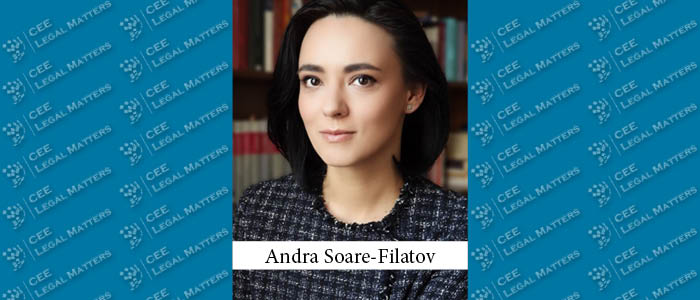Why are domestic firms in Russia doing so well, when their international counterparts continue to struggle?
Russia has been going through a volatile period the past few years, as the country continues to suffer from depressed oil prices and the effect of Western sanctions imposed following Russia’s 2014 annexation of Crimea that prohibit European and American companies from doing business with numerous wealthy Russian individuals (or companies owned by them), and prohibit specified Russian companies in the financial, energy, and defense sectors from accessing US and EU markets.
The turbulent effects on the Russian economy – the sixth largest in the world (after China, the United States, India, Japan, and Germany) with GDP of some EUR 3.5 trillion in Purchasing Power Parity – are far from theoretical. Trading Economics reports that GDP growth in Russia fell to -2.7 in 2016, climbed back up to 2.5 in July 2017, dropped down to 0.9 earlier this year, then returned to 1.8 this summer.
The sputtering economy and the mountain of sanctions (including, to some extent, counter-sanctions imposed by the Russian government itself) have made it more challenging than ever for many international law firms, also subject to the bans on working with those designated individuals, to operate in Russia. In the words of Orrick Partner Konstantin Kroll, who works on Russian deals from London after his firm closed its Moscow office earlier this year, “certainly sanctions have had a great impact on the business of international law firms present in Russia – but not Russian local firms.”
In fact, according to Lidings Partner Andrey Zelenin, “the sanctions resulted in a change of client portfolios, forcing affected companies to seek alternative solutions from other law firms. As a result, there has been a bit of migration of clients between firms.”
For that reason, among others, while the international law firms are struggling to stay afloat, domestic Russian law firms have been doing just fine. Alrud Senior Partner Maxim Alekseyev reports that, “not all the economy is doing that well, but we have grown for the last three years,” with the firm likely to increase the number of partners in the fall of this year. And Pepeliaev Group Managing Partner Sergey Pepeliaev says his firm is doing “brisk” business as well and increased in size in both 2017 and in 2018. According to him, “based on the increased number of staff, there is relevant scope of work – there is growth.”
Where’s the Business Coming From?
Despite the sanctions imposed by the West against Russian companies in select industries and against a list of “specially designated nationals” from Russia and Ukraine, Russian firms are taking full advantage of the substantial opportunities for business that remain.
Indeed, although nobody contests the chilling effect of the sanctions on the particular industries they target, sectors like pharma, IT, food processing, and agribusiness remain active, and investment from other parts of the world – Asia in particular – is making up for some of what’s no longer coming from the West. Russia’s Central Bank reports USD 25.284 billion of inward FDI for 2017, a decrease from 2016 (when the sale of a minority share in Rosneft to a special investment vehicle owned by Glencore and the Qatar Investment Authority alone accounted for some EUR 10.2 billion) but a significant increase over the USD 11.858 billion invested in 2015. In addition, according to an EY report, the number of Asian investors in the Russian market more than doubled in 2017 from the year before, from 30 to 76. Unsurprisingly, Alrud’s Maxim Alekseyev confirms, “definitely the substitution provided additional scope of work for local firms.”
CMS Moscow Managing Partner Jean-Francois Marquaire agrees that, ultimately, the relaxed attitude of Asian investors towards the sanctions represents a significant boon to the market. “There is still restructuring and divestment going on by foreign shareholders and that generates all the moves: Western investors divesting and Russian and Asian reinvesting.”
In the long run, it’s not clear that Asian investment can completely replace that which previously came from the West – the source of most foreign investment in Russia since the end of Communism. Orrick’s Konstantin Kroll points out that reports of a tide coming from the East have been heard for many years, with few tangible results. “There were expectations in previous years that there would be more Asian investors coming to Russia,” he says. “But with certain exceptions, that did not really materialize; there were Chinese investors at the very highest political level, and some investors from the Gulf coming for big political projects, but that was not nearly enough to substitute for the reduction of Western investors.”
Still, it’s not insignificant – and Herbert Smith Freehills’ Oleg Konnov suggests that the reports of the death of the West as a source of investment may be premature anyway. First, he points out, “there is a perception that sanctions generally prohibit any investment in Russia, which is fundamentally wrong.” Thus, he says, “while there has been a substantial decline in investments, in particular from the US, not only due to sanctions but also in view of the overall political situation, that does not mean that there is no interest at all.” And while “investments from Europe have also declined since 2014, recently we have seen a slow increase in investments from major EU countries, such as France and Germany.” According to him, “it will probably take some time for investment to get to its prior level, [but] I think investors from Western Europe are willing to make their investment decisions in Russia and consider the opportunities, understanding the current sanction environment.”
Accordingly, Konnov proposes that the sanctions should be seen as a beacon, generating “interest among investors who believe that there is a window of opportunity, since the valuation of Russian companies is low and competition has reduced.” Vladislav Zabrodin, the founder and Managing Partner of Capital Legal Services, sees the market in similar terms, noting that “those foreign companies that are bold enough to make the decision to be on the market now will obtain a significant advantage.”
Better Russian Law … and Law Firms
In addition to their ability to work with the full range of potential clients, Russian law firms benefit from a shift in the preferred choice of law.
Oleg Konnov notes that, for several years now, and particularly since the 2014 amendment of the Russian Civil Code that introduced a number of classic English-law M&A provisions, “the Russian government has been promoting the use of Russian law among the major corporations” – and an increasing number of companies have been following those exhortations. As a result, the need for English-law-qualified lawyers on the ground – and the amount of work available to them – has decreased.
Konstantin Kroll adds that, in addition to the increasingly business-friendly Russian code, local law firms are more skilled, experienced, and capable than ever before. “It has historically been difficult for Russian firms to develop due to the competitive legal market after many international law firms entered Russia,” he says. According to him, this changed when lawyers began leaving international law firms to join Russian firms or to start their own, representing, now, “a unique opportunity for Russian firms.”
Of course, this does not mean there’s no role for foreign-trained and qualified lawyers, and international firms continue to work on the great majority of cross-border transactions. “We rarely see Russian law firms competing with international firms in this area due to limited international expertise, international network, and familiarity with the systems operating in other countries,” says Konnov. “With a few notable exceptions, Russian firms at the moment focus primarily on domestic transactions.”
The Same Word for Crisis and Opportunity
In these circumstances, as many Russian firms have seen their bottom lines grow and picked up hundreds of new clients, and as the use of Russian law in contracts has increased, it is unsurprising that many Russian lawyers reject the suggestion that the country is in crisis at all. Lidings’ Andrey Zelenin, for instance, describes the climate in the Russian market as “no longer challenging,” and says, “we are used to the existing environment and it is more or less predictable in the sense that we have got used to a new normal in terms of the changes.”
Sergey Pepeliaev insists that the majority of both local and foreign firms are doing well, describing reports of struggle as fiction. “Both economic issues and crisis exist only in people’s minds, and everyone is tired of the crisis game,” he claims. “Therefore, now everyone thinks of changes.”
And some partners from international firms claim to have a positive outlook on the situation as well. Herbert Smith Freehills’ Oleg Konnov rejects the idea that international firms are necessarily suffering more than their domestic counterparts. “We have been continuously busy since 2014 when the first sanctions were introduced,” he says. He concedes that sanctions imposed on major Russian banks restrict debt and equity financing, for instance, but insists that simply resulted in a change of strategy. “We are unable to work on those restricted transactions,” he says, “but we can advise Russian banks and their clients in respect with any other transactions. So there are still a lot of opportunities.”
The Painful Truth
Konnov’s optimistic take is not universally not everyone at international law firms is so sunny. Orrick’s Konstantin Kroll, for one, believes that in addition to taking away business involving those “specially designated nationals,” the sanctions distress many foreign investors and joint venture partners, who worry that, even if their Russian counterparts are not subject to sanctions at the moment they will become so down the road, “and become off limits as a result.”
CMS’s Jean-Francois Marquaire is even more grim, saying of many foreign clients that: “The very best they can do now is freeze all activities and wait for better times – and in the worst case, to divest.” As a result, he reports, “in terms of business, it is a disaster, because nobody knows how to deal with those issues, and nobody in the EU wants to receive funds from those [sanctioned] joint ventures.” This, according to him, has led banks to reject transfers, forcing the firm to cease some of its relationships with sanctioned companies. Put simply: “It is a nightmare for us.”
The consequences are obvious. Marquaire describes “a relative decline of international law firms in Russia – and even local firms are starting to be alarmed by that,” and reports that the reduction of activities and in some cases closure of offices has led to a growing unemployment rate among lawyers and increased competition on fees that worsens the situation in the market. He says, “it is a sign of a market that does not go anywhere. It shrinks – and I am not happy to hear that one of my competitors is leaving the market. It is not good for all of us, including local firms.”
Andrey Zelenin agrees that the desperate measures taken to stay afloat by many of the international firms still in Moscow have a problematic effect on their domestic counterparts as well. “The disturbing factor is an increase of dumping practices, especially among those players who have not been doing well lately. There is no clear way of dealing with that, but gradually the market will come to understand that it is not a good practice.” Sergey Pepeliaev’s analysis is similar: “Unfortunately, we also witness terrible dumping from the solid foreign firms: they provide services at quite low fees to keep employees and stay afloat.”
Another Source of Pressure
International law firms in Russia may soon be facing another problem as well. Draft laws put forward in the past year to reform the legal profession in Russia would prohibit, among other things, foreigners or foreign firms from owning law firms in Russia, and a proposed general anti-sanctions law would restrict the ability of international law firms to provide legal services in Russia. Neither proposal was successful this time around – but international law firms remain concerned.
“The mere fact that twice in the past ten months there have been attempts to restrict the ability of international law firms to do business creates a bit of uncertainty and unpredictability in the business environment,” says Konstantin Kroll. “International law firms are mindful of these potential risks and are watching the situation very closely.” He sighs. “If these proposals materialize it would have a disastrous impact on the Russian economy and I think it would be a very stupid move by the government. But sometimes politics takes advantage of common sense and what is good economically. So, if this happens it would be a political move not for the greater good for the country or economy.”
Marquaire notes that similar proposals have been introduced over the years, never successfully. “The government knows that they need international law firms for the expertise we can bring, especially in cross-border deals, thus the door will never be completely closed,” he says. Still, he expects some changes in the near future. “There will be reforms, but classic reforms, which would not create any problems and would not prevent us completely from practicing in Russia,” he says. “I do not believe they would implement reforms in the shape they have been introduced recently, because it would mean that Russia is completely isolated, and for the business environment it would be a disaster.”
The Cloudy Crystal Ball
Predicting the future, in this tumultuous time, is difficult. Vladislav Zabrodin, for one, calls it a “complicated question” and notes that it depends heavily on developments in the political arena that are impossible to guess. “We still don’t know whether the relationship between Putin and Trump will have a positive change,” he says. “And we do not understand when the Russian government will be ready to make any significant structural changes in the economy.”
Jean-Francois Marquaire believes that the current circumstances will, at least in the short term, get worse: “the work will get tougher and probably for less money.” And he’s aware who will benefit from that process. “Not everyone will suffer. The closure of foreign law firms in Russia means that there is a kind of opportunity factor for some other firms to take more work, at least for a while.”
For many of the local firms, indeed, the future looks only bright, stable, and profitable. Alrud’s Maxim Alekseyev says that his firm is expecting more work in regulatory, antitrust, and corporate matters. “The next year is a year of opportunities. I think that it will be a year of constant growth, at least for us.”
May You Live in Interesting Times
Ultimately, as Vladislav Zabrodin points out, a turbulent Russian market is hardly a new phenomenon. “I think Russia is still quite an interesting market – and it was never simple,” he says. “It was sometimes more and sometimes less lucrative from a financial point of view, but it is still an interesting market that can actually bring a significant return on investment.” Thus, he believes, “right now probably is the best time to penetrate it because it is quite a significant opportunity to develop yourself in a less competitive environment.”
This Article was originally published in Issue 5.8 of the CEE Legal Matters Magazine. If you would like to receive a hard copy of the magazine, you can subscribe here.
























